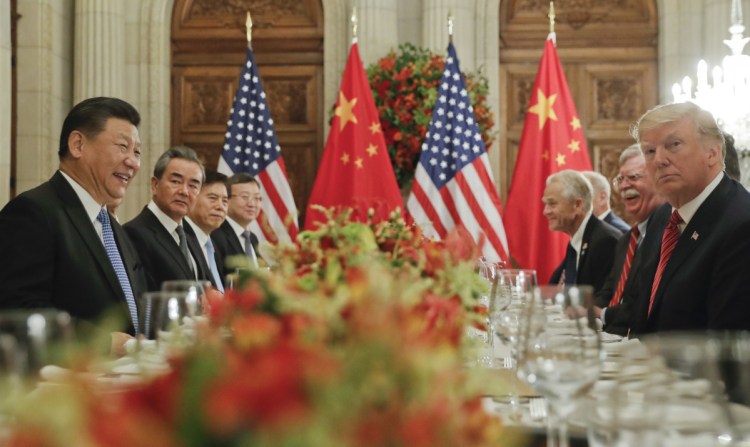No one knows exactly why China’s economic growth may be slowing, or, given the unreliability of official statistics from Beijing, how much. After Apple’s announcement Wednesday of lower-than-expected sales in the People’s Republic, Hong Kong and Taiwan, however, there is less reason to doubt that a deceleration in the world’s second-largest economy will be a major economic challenge in 2019. Unless President Trump deals with the U.S.-China relationship wisely, the spillover effects from China’s economic situation could be serious for this country and the entire world.
Some of China’s apparent slowdown reflects factors beyond outsiders’ control, such as the nation’s continued reliance on inefficient state-owned industries rather than the more dynamic private sector; and some of it actually reflects necessary Chinese policies, such as a tightening of credit to the overheated real estate market.
Yet in downgrading investor expectations for his company’s sales, Apple chief executive Tim Cook also cited the threat to China from “rising trade tensions with the United States,” which is very much a result of U.S. policy: specifically, Trump’s imposition of tariffs on $250 billion worth of Chinese exports to the United States and his threat to impose more.
For Trump, imposing pain on China – or at least threatening to do so – is all a part of the plan to force that country to reduce its trade deficit with the United States. He believes the strategy is working, and there’s no question that he has gotten Beijing’s attention. President Xi Jinping agreed to discuss key U.S. concerns in return for Trump’s postponement until March 1 of a new round of tariffs on an additional $200 billion worth of Chinese goods. Because of the truce and the booming U.S. economy and strong dollar, Chinese exports to the United States have not actually decreased in recent months, contrary to Trump’s intentions.
Still, dealings between the two governments over the next 60 days or so may determine whether they can steer past a possible trade war, to their mutual benefit and that of their trading partners, or whether heightened tariffs help distort the entire global economy.
In this struggle, Trump enjoys what is, for him, an unusual level of bipartisan support, reflective of a growing American consensus that China has indeed failed to play by the rules of the international economic system for too long. Business, labor and supporters of trade in both parties recognize that the United States and its fellow Western democracies have legitimate complaints regarding China’s subsidization of excess steel capacity, intellectual-property theft and forced technology transfers, among other issues.
The more Trump stays focused on those matters, as opposed to pursuing his misguided obsession with the bilateral trade balance, and the more he can present a united front by easing conflicts with other trading partners, the more likely he is to induce Xi to make concessions, or, if that doesn’t happen, to enjoy support for additional measures against Beijing. We hope it won’t come to that – that China will offer a reasonable response and Trump can then take “yes” for an answer.
Send questions/comments to the editors.



Comments are no longer available on this story